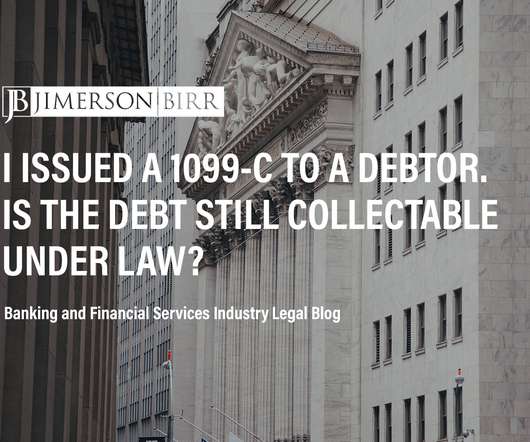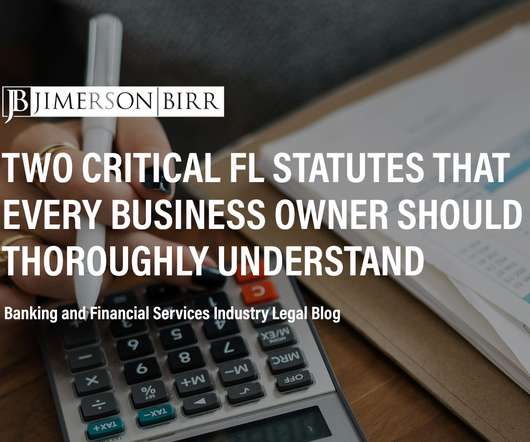Can a Lender Pursue Debt Collection After a Charge Off and 1099-C Issuance?
Jimerson Firm
FEBRUARY 10, 2022
Generally, if debtors owe a debt to a lender, and the lender cancels or forgives that debt for less than its full amount, the debtor is treated for income tax purposes as having income and may have to pay tax on this income by virtue of a 1099-C filing from the lender. Charging Off” Uncollectable Debt. 1.6050P-1(b)(2)(i).












Let's personalize your content